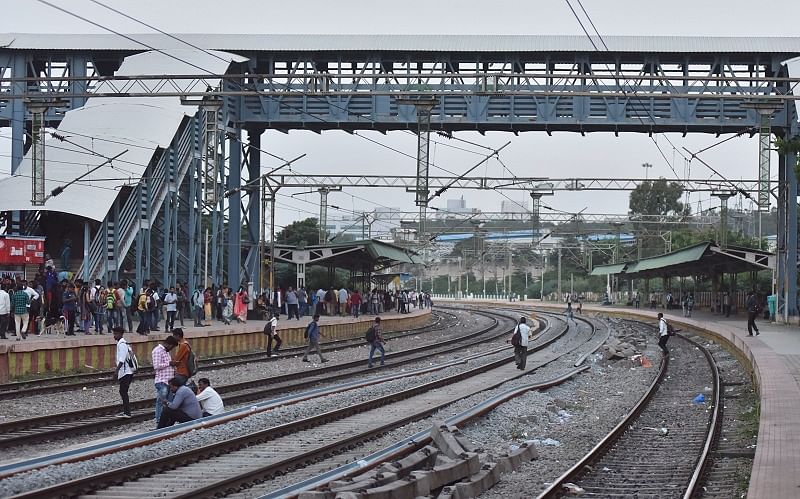
The clearance for a 148-km suburban railway network for Bengaluru has come as a huge relief for thousands of commuters who are now dependent on the skeletal services and long-distance trains. They have welcomed the development while offering suggestions from experience.
For years, these travellers – office-goers, factory workers and long-distance commuters – had to struggle with infrequent trains, unreliable schedules and crowded coaches. A full-fledged suburban service could change all that.
“It’s a good plan. But further action must be taken to kick off the service as soon as possible. This will help reduce traffic on the road as many people will prefer using trains than any other mode of transportation. Use of personal vehicles will also come down,” says Dinesh, a daily commuter. “It will also be an affordable mode to commute daily without hassles.”
For scores of employees working in IT firms, the network would make a big difference. Karthik, who works in an IT firm, explains, “Enroute to Whitefield, the Metro work has been going on for years, and the roads are extremely congested.”
An upgrade from the existing skeletal suburban service will help a lot of people travelling on this route, he notes. “I’ve been commuting on these trains for almost 4-5 years. A few new trains have come up in the last two years and it has helped us a lot. Now, with a full-fledged network, many more will start using these trains.”
Traffic on the road, he is convinced, will definitely come down. “New trains in the morning from 6 to 7 am and in the evening around 5-6 pm will definitely help a lot of people who work in IT firms in the Whitefield area,” Karthik says.
Most rail commuters on this route have experienced the relative ease of travelling on the trains despite all the current challenges of frequency. They are certain that with the city’s rising population, depending only on the road will just not be sustainable. The suburban rail network will take a big load off the congested roads, packed with cars, two-wheelers and buses.
“It is a very good project,” says Sudip Dey, another regular train commuter. “With the level of Bengaluru’s population and traffic on the road, a well-planned suburban rail is definitely required.”
Aishwarya, who works for Rockwell Automation feels the project will make a big change provided it is executed well. “There are many people who depend on these trains everyday for commuting. The new trains here are good. But they have very few coaches. Capacity has to be increased to make better impact,” she points out.
She also wants the network to be accessible from different parts of the city. This would mean more stations across the city, and inter-connectivity with the Metro and the BMTC bus stops. Incidentally, the suburban network planned for the city will have 53 stations.
For Tejasvini Chethan, an English faculty member at a city college, a robust suburban rail network would add a new dimension to the city’s transport fabric. “It will take a huge load off the roads, now packed with personal private vehicles in so huge numbers that they are unmanageable,” she points out.
Once the full-fledged suburban rail network is ready, she hopes people would be able to quickly go from place to place. It would complement the Metro in a big way. “By decongesting the roads, the network will hopefully address the big problem of vehicular pollution. Bengaluru will be a lot more cleaner.”